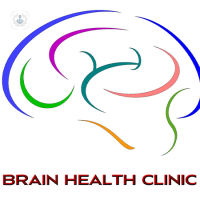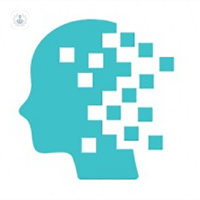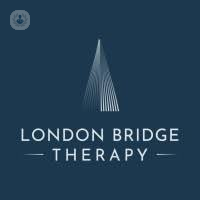Personality disorders
What are personality disorders?
Personality disorders are a group of mental health problems in which your behaviours, thoughts, attitudes and emotions present a long deviation from the personality patterns considered "healthy". These culminate to cause your long-term problems in your life. Frequently, someone with a personality disorder will struggle to relate to other people and to situations, which can result in problems at school, work and in relationships.
They are classified into the following types:
- Schizoid personality disorder
- Schizotypal personality disorder
- Paranoid personality disorder
- Borderline personality disorder (BPD)
- Antisocial personality disorder (ASPD)
- Histrionic personality disorder
- Narcissistic personality disorder
- Avoidant / anxious personality disorder
- Dependent personality disorder
- Obsessive compulsive personality disorder (OCPD)

What symptoms do they present?
Symptoms vary widely depending on the type of personality disorder. In general, they involve feelings, thoughts and behaviours that do not adapt to different environments. These patterns usually appear during adolescence.
Schizoid personality disorder:
- Prefer to be alone
- Limited range of emotional expression
- Unable to pick up on social cues
Schizotypal personality disorder:
- Finds it difficult to form close relationships
- Expresses self in odd ways, e.g. dressing strangely
- Social anxiety
- The belief that certain incidents have hidden messages
Paranoid personality disorder:
- Cannot confide in others, including friends
- Cannot trust others
- Seek out signs of betrayal
- A tendency to hold grudges
Borderline personality disorder (BPD):
- Impulsive, risky behaviour (e.g. unsafe sex)
- Unstable relationships
- Easily angered
- Feel worried that people will abandon you, taking steps to stop this from happening
- Ups and downs in mood
Antisocial personality disorder (ASPD):
- Lies persistently
- Having problems with the law
- Impulsive
- Lack of remorse
- Aggressive
- Violates others’ rights
Histrionic personality disorder:
- Needs to be at the centre of attention
- Has a reputation for being overdramatic and emotional
- Dependent on the approval of others
- Easily influenced by others
- Shallow
- Obsession with physical appearance
Narcissistic personality disorder:
- Believing you are special and better than others
- Resentful of other people’s success
- Exaggeration of achievements and talents
- Arrogant
- Will take advantage of others
Avoidant / anxious personality disorder:
- Sensitive of criticism and rejection
- Feels inadequate
- Avoid friendships and relationships
- Easily embarrasses
- Extremely shy
Dependent personality disorder:
- Unable to function without the help or support of others
- Low self-confidence
- Clingy toward others
- Tolerates poor or abusive treatment
- Fears disapproval
Obsessive compulsive personality disorder (OCPD):
- Has to keep everything under control
- Sets high standards for self and others
- Expects catastrophes
- Stubborn and inflexible
- Reluctant to spend money
What causes personality disorders?
The causes of personality disorders are unknown, but it is thought that some people develop personality disorders due to a combination of these factors:
- Childhood environment (e.g. unstable family, with a lack of parental support or care)
- Early childhood and teenage experiences (e.g. neglect, loss, abuse and traumatic experiences)
- Genetic factors
How are personality disorders treated?
The treatment of personality disorders requires dealing with personalised psychological therapy. In some cases, pharmacological treatment can be a useful component of treatment. Research is still ongoing about what treatments are most helpful for people with personality disorders.
The following ‘talking treatments’ have been found to help:
- Cognitive behavioural therapy (CBT) – during CBT, the patient works with the therapist to assess how their thoughts, feelings and behaviours influence each other and how bad patterns can be changed.
- Cognitive analytic therapy (CAT) – this combines CBT methods to focus on how the patient relates to other people.
- Dialectical behaviour therapy (DBT) – specifically developed for treating BPD, it combines individual and group therapy to learn skills to manage emotions.
- Mentalisation based therapy (MBT) – long-term talking treatment that improves the patient’s ability to understand theirs and other people’s mental states, and to understand their validity.
- Arts therapies – using art in a therapeutic environment with a trained therapist.
- Schema therapy – this is done long-term and involves working with a therapist to change the patient’s ways of thinking (their ‘schemas’) that cause them difficulties.
- Therapeutic communities (TC) – group therapy sessions, often in a residential setting, aimed at allowing people experiencing similar mental health problems to support each other in their recovery.
Although there are not any drugs licensed specifically for use with personality disorders. You may receive medication for other problems, such as depression, psychosis and anxiety.











